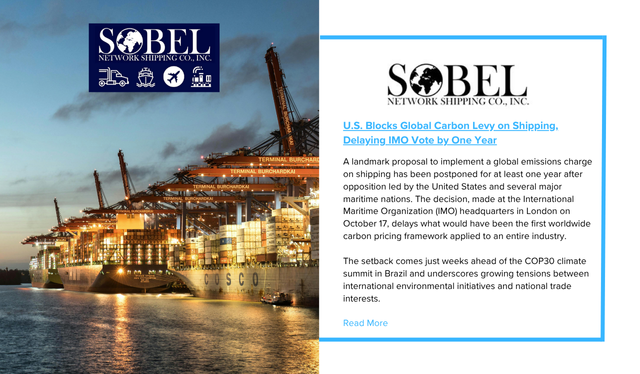A landmark proposal to implement a global emissions charge on shipping has been postponed for at least one year after opposition led by the United States and several major maritime nations. The decision, made at the International Maritime Organization (IMO) headquarters in London on October 17, delays what would have been the first worldwide carbon pricing framework applied to an entire industry.
The setback comes just weeks ahead of the COP30 climate summit in Brazil and underscores growing tensions between international environmental initiatives and national trade interests.
The proposed measure would have required ocean carriers to pay for their carbon emissions — over 1 billion tons annually — marking a major shift toward cleaner fuels such as ammonia and methanol. Supporters had anticipated approval this year following years of negotiations, but a coalition of countries led by the U.S., Saudi Arabia, and Singapore pushed to defer the decision, citing potential cost increases and economic risks to global trade.
U.S. officials described the plan as a “global carbon tax” that could raise shipping costs by up to 10% and warned of retaliatory steps, including port levies and trade penalties, if the measure advanced. The administration argued that the charge would unfairly burden importers, exporters, and consumers at a time of heightened supply chain pressures.
Environmental advocates and shipping organizations expressed disappointment at the delay, warning that it introduces uncertainty for maritime decarbonization efforts and may hinder long-term investment in alternative fuels and cleaner vessels.
The IMO’s carbon levy proposal was seen as central to the global maritime industry’s net-zero strategy by mid-century. With the vote now postponed until late 2026, experts say the path to achieving that goal has become far more uncertain.


